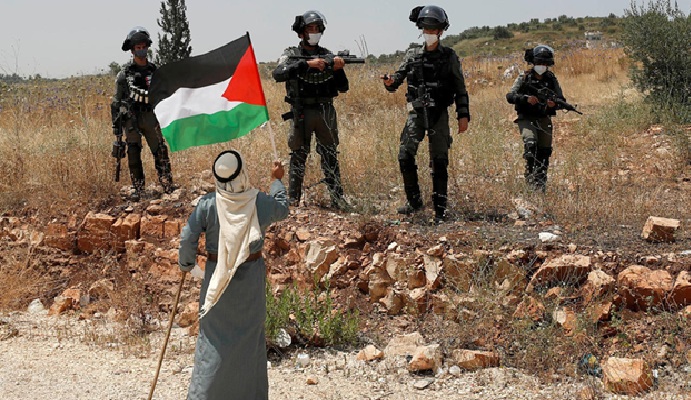
Afrasianet - Mohammed Sabih Al-Zawahra - The more the judicial and political noose around Benjamin Netanyahu's neck intensifies, the more he turns outwards, in search of an escalation that will reshuffle the cards and postpone his confrontation with justice. This is no longer a political analysis, but has become a recurring pattern in the behavior of the Israeli prime minister, who invests in security crises to avoid his personal crises and internal scandals.
Today, Netanyahu is going through a very critical phase internally, amid sharp divisions within Israeli society, frequent protests, and a heavy trial file that is pursuing him on corruption and embezzlement charges. But his options abroad are no longer the same: Gaza has become a ghost town, human and urban debris, after an ongoing aggression that has destroyed almost everything.
On the Syrian front, the occupation has been temporarily curbed by an undeclared international consensus led by the United States and under direct pressure from Jordan and Turkey, which share the same fears about the expansion of the confrontation and the explosion of the situation on their northern and eastern borders. The repeated Israeli raids on the Syrian interior have been relatively reduced in their frequency and the size of their targets, which reflects the existence of a phased international decision to curb Israeli military expansion inside the Syrian arena and prevent it from turning into a full-scale arena.
As for southern Lebanon, the battle there is almost over, after Hezbollah's infrastructure has been largely depleted, its effectiveness on the ground has decreased, and the vital targets that can be hit have practically ended. The occupation has nothing to achieve there, and the war on Lebanon has become meaningless, after the pressure cards have been exhausted and the momentum of the confrontation has declined significantly.
The Houthis, on the other hand, are geographically remote, fortified with terrain that makes them out of the calculations of decisive strikes, with increasing complexity in targeting them militarily.
In the face of this complex equation, the West Bank is emerging as an available and dangerous option. Netanyahu and the extreme right find it a relatively "flexible" arena for exporting the crisis, and it may be their next stop to blow up the situation and create a large-scale clash. A military invasion, or a systematic security collapse, could lead to the downfall of the Palestinian Authority and plunge the West Bank into chaos that would effectively end what was left of the Palestinian state project and open the door to gradual or direct annexation of large parts of it.
This scenario serves more than one purpose: it gives Netanyahu a political escape, satisfies the aspirations of the settler Zionist right, and provides a "justified" environment for redrawing the geographical and demographic reality on the ground in accordance with the vision of "Greater Israel."
But the risk here does not stop at the borders of Ramallah, Nablus and Jenin. The explosion in the West Bank will reshape the regional security equations and put Jordan in direct contact with a flaming arena, which poses a strategic threat to the nature of the relationship with the occupation, as well as to border and political stability at the same time.
This "savage" rush of the occupation government, driven by personal political madness and unprecedented ideological extremism, is no longer just an internal behavior that can be contained, but has turned into an imminent regional danger. Hence, the responsibility of the international community and regional powers is no longer a diplomatic luxury, but an urgent need to rein in this policy before the entire region explodes and enters a tunnel where no one knows where it will end and who will pay the highest price in it.

